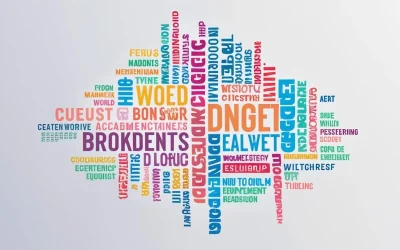Explore this collection of idioms about clothing, highlighting phrases and expressions that involve mentions of apparel.Numerous captivating and uncommon idioms are present in the English language, commonly used in everyday discourse. To enhance your English proficiency, it is advisable to grasp not only grammar and vocabulary but also idiomatic expressions. Today, I draw your focus to nine clothing-related idioms in English, with some being more prevalent in American English and others in British English.
What is your English level?
Find out your A1 A2 B1 B2 C1 C2 level of English with our online test and receive your English certificate.
Learn some common clothing idioms!
Have a card up one’s sleeve
A widely used English idiom, it signifies having a concealed or undisclosed plan or strategy that can be employed for an advantage in the future.
For instance: Should the company attempt to terminate her employment, she has a trick up her sleeve—she is aware of the boss’s unethical business tactics.
Hit (someone) below the belt
This well-known idiom refers to treating someone unjustly, often involving unfair or dishonest actions. It can also involve making inappropriate, insulting, and potentially embarrassing remarks to or about a person.
For instance: During his speech, the politician discussed his opponent’s personal matters, crossing a line by making disparaging comments— he went below the belt.
Lose one’s shirt
This expression signifies experiencing a significant financial loss, possibly in an unsuccessful business endeavor, the stock market, or through gambling.
For instance: My brother suffered a substantial financial setback last year, losing his shirt in a gambling venture and subsequently having to sell his house.
In one’s birthday suit
The initial idiom in our compilation indicates being “unclothed” or “naked.”
For instance: See that boy? He’s running across the yard in his birthday suit.
Fall apart at the seams
This expression signifies that something is experiencing a state of decline or deterioration and has become less effective or useful.
For instance: The healthcare system is deteriorating and not very functional anymore.
Caught with one’s pants down (not literally though)
This means: unprepared.
For instance: We spent a lot of time preparing for the inspection; we didn’t want to get caught with our pants down.
Fit like a glove
This means: something being worn fits perfectly or fits tight to the body
For instance: That last dress fit like a glove.
Fly by the seat of one’s pants (link seatof)
This means: use your instincts to tell you what to do in a new or difficult situation rather than following a plan or relying on equipment.
For instance: I had never managed people before and I was flying by the seat of my pants for the first few months.
Put a sock in it (you can practise linking here ‘puta’ ‘sockinit’)
This means: to tell someone to stop talking
For instance: Put a sock in it! I’m trying to listen to the speaker.
Wear one’s heart on one’s sleeve (WEAR is said ‘where’ like where are you going)
This means: to display one’s emotions openly
For instance: My partner’s not afraid to cry in public. He wears his heart on his sleeve. (This isn’t a very polite idioms!)
Are you C1 Advanced English?
Get your C1 Advanced English certificate now!
✓ Add your certificate to your resume
⭐ ⭐ ⭐ ⭐ ⭐
I am Nilay, an experienced English Language Assessment Director at the International English Test, where I have been working full-time since February 2020. I specialize in helping people worldwide validate their English proficiency through comprehensive assessments and certifications.
Before joining the International English Test, I worked as a self-employed English Language Assessment Consultant from January 2015 to December 2019. During this time, I assisted companies and individuals in improving their language skills, helping them achieve their academic and professional goals.
I hold a degree in Engineering and have also studied at Shafston International College in Australia. My educational background has equipped me with the tools to make a meaningful impact in the field of English language learning. Additionally, I enjoy sharing my expertise through articles that explore effective teaching methods and language assessment strategies, contributing to the International English Test and the broader assessment community.





